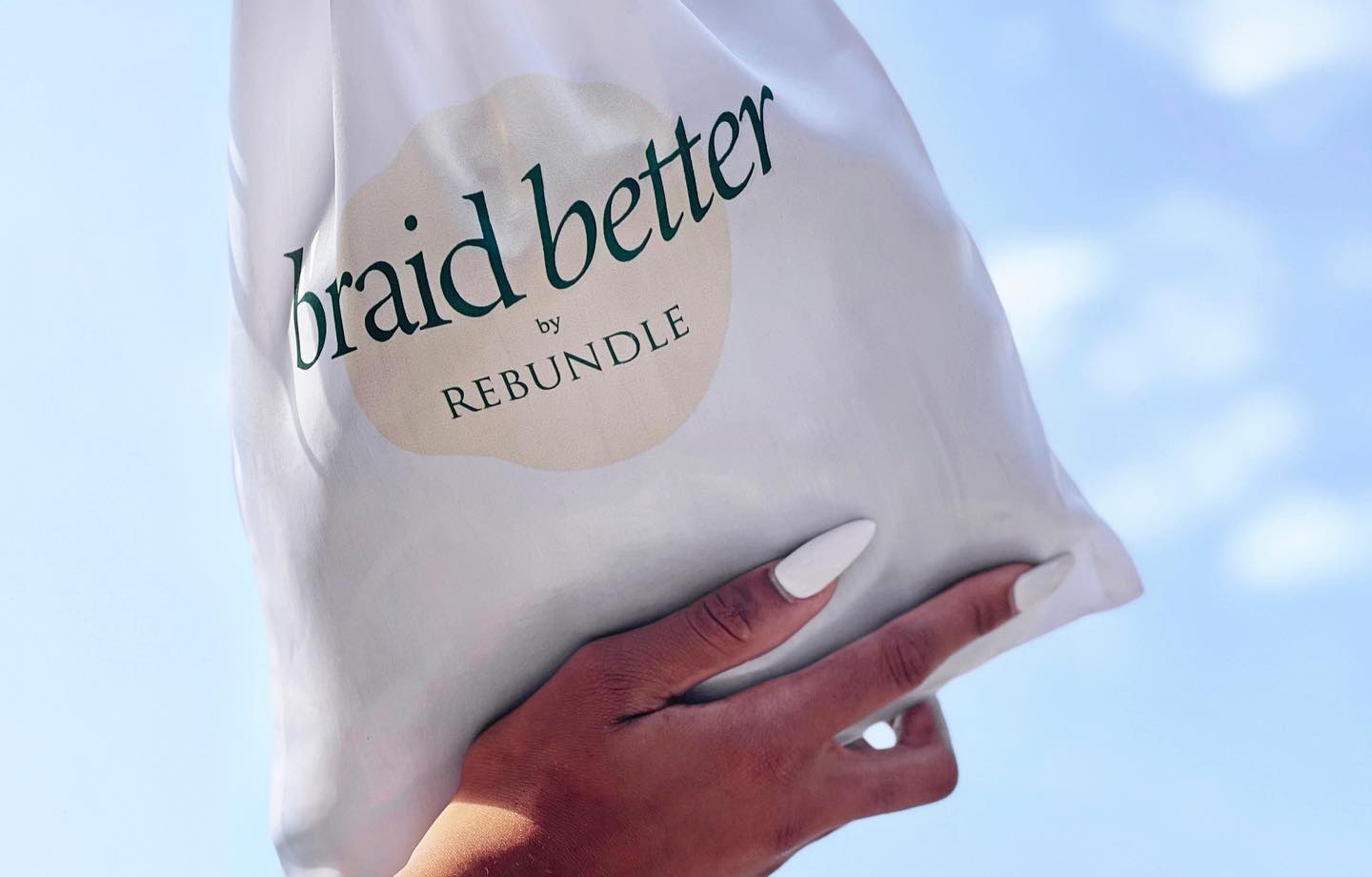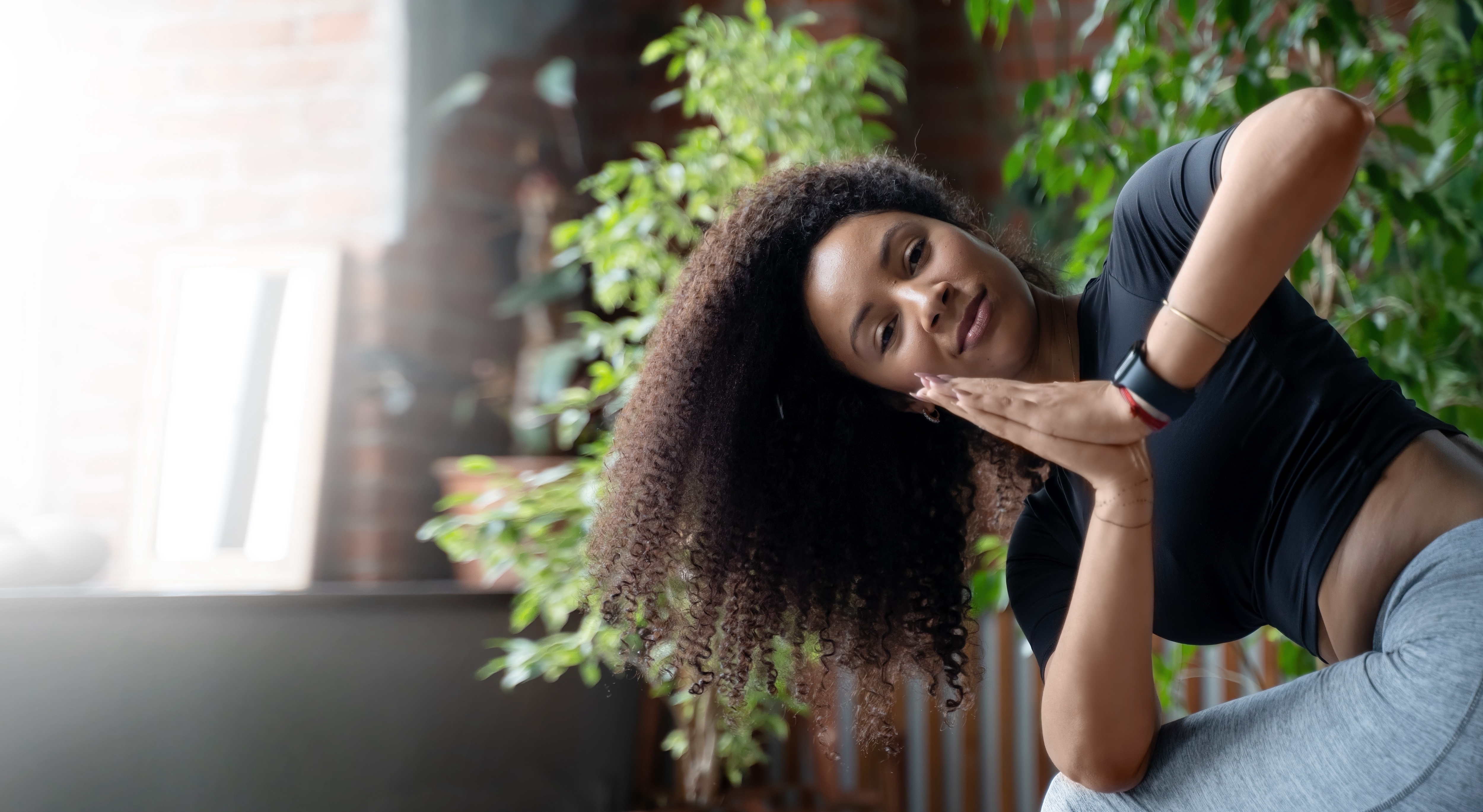Rebundle Secures First U.S. Patent for Banana Fiber Hair Extensions, Redefining Non-Toxic Beauty
In the world of beauty, small irritations are often ignored. A little itch, a little burn, brushed aside in the name of style. But when Ciara Imani May sat in her college dorm scratching her scalp after getting braids, she couldn’t shake the question: Why does beauty have to hurt? That simple, persistent question planted the seed for a revolution.
Years later, that seed has blossomed into Rebundle, the first U.S.-based plant-based hair extensions company. In July 2025, the brand marked a groundbreaking milestone. It secured a U.S. patent for its signature ReGen H Fiber™, an innovation made from banana fiber that replaces the plastic traditionally used in synthetic braiding hair. The achievement is more than a business win. It is a declaration that beauty can be non-toxic, sustainable, and designed with the health of Black women in mind.
Founder’s Backstory
May’s journey began with discomfort but quickly became about something larger. She discovered that the very fibers woven into millions of women’s protective styles were often laced with chemicals that irritated skin, released toxins, and contributed to environmental waste. For years, synthetic extensions have been made from plastics that cannot biodegrade, piling into landfills long after the styles are gone.
As she dug deeper, she found what many stylists and wearers had long suspected: the industry lacked safe alternatives. There were no clean, plant-based fibers designed specifically for Black hairstyles on the market. For May, who held a background in social entrepreneurship and had time to innovate during a transitional period in her career, this gap was both a personal challenge and an opportunity.
“I was inspired to develop hair extensions that were better in terms of comfort and safety,” May has explained. “And just as important, not as harmful on the environment as the plastic.”
The Innovation of ReGen Hair Fiber™
The answer became banana fiber. By re-engineering natural materials into extensions, Rebundle created a product that was biodegradable, non-toxic, and gentler on the scalp. What started as an experiment quickly grew into a brand recognized by beauty professionals, sustainability advocates, and women tired of compromising their health for style.
The recent patent is a turning point. It protects the core innovation of ReGen Hair Fiber™, ensuring that the company’s work cannot be easily copied or diluted by competitors. It also marks the first patent in the United States for a plant-based braiding hair product, putting Rebundle in uncharted territory.
For May, the milestone is not just a technicality. It is proof that her company’s vision is grounded in science, intellectual property, and the long game of building an entirely new category within the beauty industry. “Rebundle has its first patent,” she shared in announcing the news. “For our community, it’s proof of concept. We are building a safer, non-toxic future for Black beauty.”
Shifting the Black Beauty Landscape
The story of Rebundle is not only about technology. It is about reclaiming agency in a beauty industry that has too often overlooked the health and needs of Black women. For decades, protective styles like box braids and twists have carried deep cultural meaning, yet the materials used to create them were mass-produced plastics never designed with wellness in mind.
By introducing a fiber that centers health and sustainability, Rebundle is challenging the very assumptions of the market. The patent signals to manufacturers, stylists, and consumers that alternatives exist, and they are backed by legal protection as well as scientific rigor. For the women who wear these styles daily, it means they no longer have to choose between expression and comfort.
The Environmental Stakes
Every year, millions of pounds of synthetic braiding hair are thrown away. Because they are made from petroleum-based plastics, they can take centuries to break down. Many are burned after disposal, releasing harmful toxins into the air.
Rebundle’s ReGen Hair Fiber™ is different. Because it is made from banana fiber, it can biodegrade naturally. This innovation reduces the environmental footprint of a global industry and brings the conversation about beauty into alignment with the climate crisis. By securing a patent, Rebundle has ensured that the path toward cleaner beauty remains protected and scalable.
A Model for Community-First Innovation
For May, the patent represents more than corporate strategy. It represents a model of innovation rooted in the community it serves. Unlike many beauty brands that retrofit products for Black consumers after the fact, Rebundle was built with Black women at the center from its inception.
That intentionality is part of what has drawn attention from investors and advocates in the sustainable beauty sector. Rebundle shows that community-centered businesses can also lead the way in intellectual property, science, and global relevance. It is proof that solutions born out of lived experience can change entire industries.
Industry Disruption and Future Growth
The patent positions Rebundle as a category creator in non-toxic extensions. Competitors may attempt to innovate, but the legal protection ensures that the company’s specific process and product remain unique. This gives Rebundle the runway to grow without dilution, a rare advantage in the highly competitive beauty sector.
It also sets a precedent. By prioritizing intellectual property, May has elevated Rebundle from a small business into a leader with staying power. Other Black women founders, particularly in beauty and wellness, may see this as encouragement to protect their innovations with patents, trademarks, and legal strategies that ensure longevity.
Founder’s Vision
In announcing the milestone, May framed it as part of a larger mission. “Our patent protects the core innovation,” she said. “But for our community, it’s proof. We’re building a safer, non-toxic future for Black beauty.”
That future is not theoretical. It is already here, woven into braids and twists that women wear without fear of chemical irritation. It is in the waste stream, where fibers once destined to pollute now return harmlessly to the earth. It is in the boardroom, where a young Black founder has not only built a product but claimed ownership of the process itself.
From a college dorm room to a U.S. patent, Ciara Imani May’s journey is a reminder that revolutions often begin with a single, persistent question. Why does beauty have to hurt? Her answer is changing both an industry and a culture. Rebundle’s patent is more than a legal document. It is a cultural landmark. It proves that innovation rooted in personal need can scale into global relevance. It affirms that Black women deserve beauty products that honor both their health and their heritage. And it points toward a future where non-toxic, plant-based beauty is not the exception but the standard.







